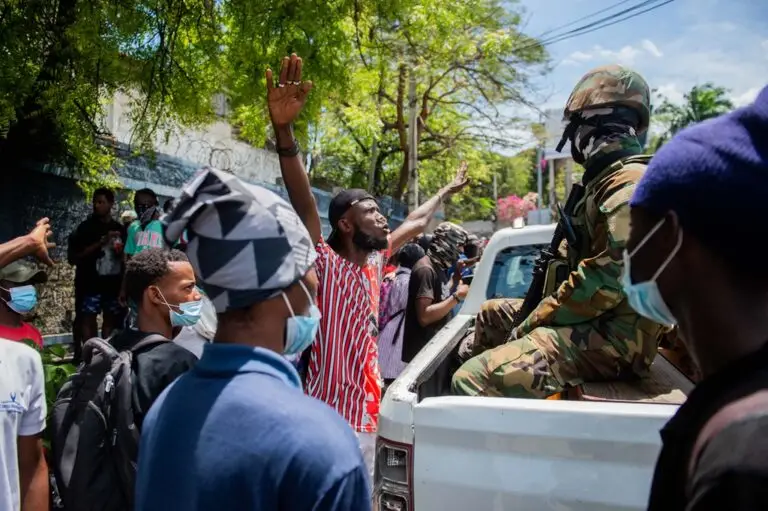MONTEGO BAY—Caribbean leaders left last week’s Caricom summit with a stark assignment: move from polite diplomacy to decisive action in Haiti. Chairing his first heads-of-government meeting, Jamaica’s Prime Minister Andrew Holness pressed colleagues to “tighten the screws” on regional support, warning that the wider international response is stuck in neutral while Haiti’s security vacuum widens.
His urgency was echoed the same day in Geneva, where the UN’s human-rights apparatus unveiled a grim nine-month ledger of violence. Since October 2024, gangs have slaughtered 4,864 Haitians—over 1,000 of them in the Artibonite and Centre departments alone—and driven hundreds of thousands from their homes. The Lower Artibonite massacre in Pont Sondé marked the pivot; subsequent killings emptied Mirebalais, a town of 100,000, almost overnight.
UN spokesperson Ravina Shamdasani called the situation “an unending horror story,” noting that gang influence now stretches along strategic corridors linking Port-au-Prince to the Dominican border. The report also flags a troubling twist: ‘self-defence’ militias and overstretched security forces have committed their own share of abuses, further eroding public confidence.
On the ground, Haiti’s specialized police units—augmented by the Kenya-led Multinational Security Support mission—have managed only to slow the gangs’ advance, not reverse it. Supplies, manpower, and political cover remain thin. UN Assistant Secretary-General Miroslav Jenca, briefing the Security Council, warned of “a sharp erosion of state authority” that could culminate in Port-au-Prince falling completely out of government hands.
Against that backdrop, Holness threw down a regional gauntlet: Caricom cannot outsource Haiti’s rescue. The bloc’s credibility—indeed its relevance—now hinges on whether it can marshal resources, broker political consensus, and stiff-arm reluctant global partners into acting. Lofty communiqués won’t stop gunmen; coordinated logistics, funding, and boots on the ground might.
The appeal is not just humanitarian. A failed Haitian state spells migration pressures, trans-Caribbean criminal networks, and reputational damage to a region that champions solidarity. As Holness bluntly put it, “Leaving Haiti to gang rule is a luxury we do not have.”
Caricom’s next steps will test that resolve. Member states must translate Montego Bay’s rhetoric into tangible deliverables—whether that means financing the MSS deployment, shoring up the Haitian National Police, or leveraging diplomatic muscle to fast-track external assistance.
Time is hemorrhaging alongside Haitian lives. The region’s leaders know the headlines they write from here on will either chronicle a collective rescue or record the moment the Caribbean looked away.

